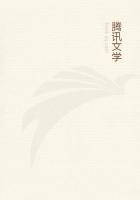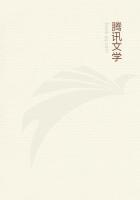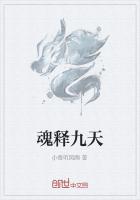In short, during the five years that she has ruled at the Shaw cottage, the world has gone well with Hannah Bint. Her cow, her calves, her pigs, her bees, her poultry, have each, in their several ways, thriven and prospered. She has even brought Watch to like butter-milk, as well as strong beer, and has nearly persuaded her father (to whose wants and wishes she is most anxiously attentive) to accept of milk as a substitute for gin. Not but Hannah hath had her enemies as well as her betters. Why should she not? The old woman at the lodge, who always piqued herself on being spiteful, and crying down new ways, foretold from the first she would come to no good, and could not forgive her for falsifying her prediction; and Betty Barnes, the slatternly widow of a tippling farmer, who rented a field, and set up a cow herself, and was universally discarded for insufferable dirt, said all that the wit of an envious woman could devise against Hannah and her Alderney; nay, even Ned Miles, the keeper, her next neighbour, who had whilom held entire sway over the Shaw common, as well as its coppices, grumbled as much as so good-natured and genial a person could grumble, when he found a little girl sharing his dominion, a cow grazing beside his pony, and vulgar cocks and hens hovering around the buck-wheat destined to feed his noble pheasants. Nobody that had been accustomed to see that paragon of keepers, so tall and manly, and pleasant looking, with his merry eye, and his knowing smile, striding gaily along, in his green coat, and his gold-laced hat, with Neptune, his noble Newfoundland dog (a retriever is the sporting word), and his beautiful spaniel Flirt at his heels, could conceive how askew he looked, when he first found Hannah and Watch holding equal reign over his old territory, the Shaw common.
Yes! Hannah hath had her enemies; but they are passing away. The old woman at the lodge is dead, poor creature; and Betty Barnes, having herself taken to tippling, has lost the few friends she once possessed, and looks, luckless wretch, as if she would soon die too!--and the keeper?--why, he is not dead, or like to die; but the change that has taken place there is the most astonishing of all--except, perhaps, the change in Hannah herself.
Few damsels of twelve years old, generally a very pretty age, were less pretty than Hannah Bint. Short and stunted in her figure, thin in face, sharp in feature, with a muddled complexion, wild sunburnt hair, and eyes whose very brightness had in them something startling, over-informed, super-subtle, too clever for her age,--at twelve years old she had quite the air of a little old fairy. Now, at seventeen, matters are mended. Her complexion has cleared; her countenance has developed itself; her figure has shot up into height and lightness, and a sort of rustic grace; her bright, acute eye is softened and sweetened by the womanly wish to please; her hair is trimmed, and curled and brushed, with exquisite neatness; and her whole dress arranged with that nice attention to the becoming, the suitable both in form and texture, which would be called the highest degree of coquetry, if it did not deserve the better name of propriety. Never was such a transmogrification beheld. The lass is really pretty, and Ned Miles has discovered that she is so. There he stands, the rogue, close at her side (for he hath joined her whilst we have been telling her little story, and the milking is over!)--there he stands--holding her milk-pail in one hand, and stroking Watch with the other; whilst she is returning the compliment by patting Neptune's magnificent head. There they stand, as much like lovers as may be; he smiling, and she blushing--he never looking so handsome nor she so pretty in all their lives.
There they stand, in blessed forgetfulness of all except each other; as happy a couple as ever trod the earth. There they stand, and one would not disturb them for all the milk and butter in Christendom.
I should not wonder if they were fixing the wedding day.














